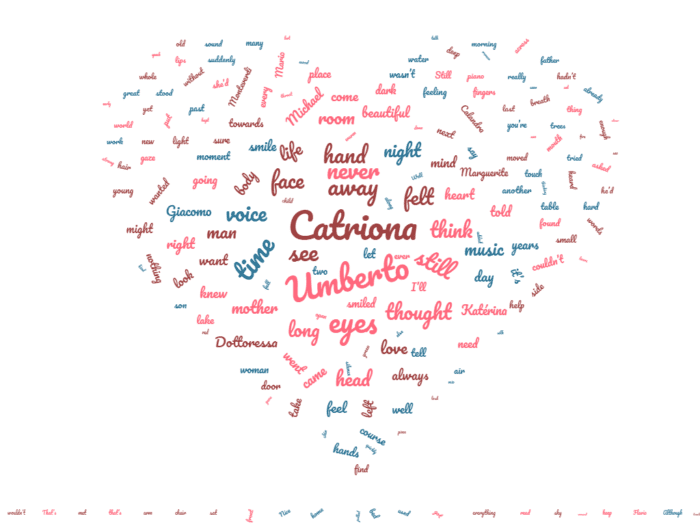What makes us fall in love with a romance novel?
What makes us fall in love with a romance novel?
What makes us fall in love with a romance novel?
-
Hannah
-
Hannah

As part of the BBC’s ‘The Novels That Shaped Our World’ series, academics at the University of Wolverhampton and the Open University are conducting a survey to find out which romance novels readers love, and why. The researchers are also analysing all 100 books in the BBC’s ‘Novel’s That Shaped Our World’ list. They will be looking closely at the writing style, along with the themes.
You can complete The Novels Survey here. I did so, and I found it a thought-provoking exercise. What is it that makes us really fall in love with a romance novel? Here are my thoughts.
Characters
In a romance, the hero and heroine are at the very heart of the book – their thoughts, their emotions, their journey.
The reader needs to be able to identify with the heroine and see the story through her eyes. When Jane Eyre says: ‘I am no bird; and no net ensnares me: I am a free human being with an independent will’, I always feel I want to cheer.
It’s essential that the reader also connects with the hero – and that means seeing him as attractive. His attractiveness is not about being the epitome of male perfection, however; quite the contrary. The best heroes, I think, are flawed. Take Mr Darcy, who is stiff and, by his own admission, has a ‘resentful temper’ – and yet Elizabeth, and we as readers, come to love him.
Situation
The situation into which the characters are plunged has to be compelling, promising the reader drama, emotional angst and passion.
Usually, the attraction between the hero and heroine is there from the start, but their love is thwarted – by their different stations in life, by deception and lies, by a misunderstanding, by an antagonist, by illness, by disaster, by foolish decisions. Romeo and Juliet set the model for the plot of a romance novel: two people falling head over heels in love, but then realising that they are from different worlds.
Themes
The best romance novels have clear and compelling themes. When I sit down to write a novel, the themes come first: emotional themes like identity, honesty and courage, but also themes that will infuse the writing with meaning, like the theme of music in my novel Concerto and the theme of Greek mythology in Aphrodite’s Tears.
Researchers have compared themes in classic romance novel Pride and Prejudice and modern love story Bridget Jones’s Diary by analysing the frequency of words in the text. I did such an analysis on Concerto, and you can see at a glance the themes that emerge: the hero and heroine, vision, touch, beauty, music, time, thoughts, feelings.

Style
Whether you prefer a poetic, literary tone or a more conversational one, the style needs to sweep you into a romantic mood. Romance novels are where you find writing that you want to highlight, learn by heart, write in a notebook, treasure. Lines like these do more than tell a story; they encapsulate the experience of love:
‘He’s more myself than I am. Whatever our souls are made of, his and mine are the same.’ – Emily Brontë, Wuthering Heights
‘I loved her against reason, against promise, against peace, against hope, against happiness, against all discouragement that could be.’ – Charles Dickens, Great Expectations
‘You should be kissed and often, and by someone who knows how.’ – Margaret Mitchell, Gone With the Wind
‘To love or have loved, that is enough. Ask nothing further. There is no other pearl to be found in the dark folds of life.’ – Victor Hugo, Les Miserables
Je ne sais quoi
Finally, in every romance novel that is beloved by readers, I would argue that there is something special, a certain ‘je ne sais quoi’ that is hard to define. Why did Twilight, the story of a one-hundred-year-old vampire falling in love with a seventeen-year-old girl, strike such a chord with millions of readers?
It seems to me that this ‘je ne sais quoi’ element exists with romance novels because it exists with romance itself. What makes falling in love so fascinating and thrilling is that it is unpredictable and unexplainable: often we don’t know why we fall for someone, we just do – we ‘click’. So it is with a romance novel.